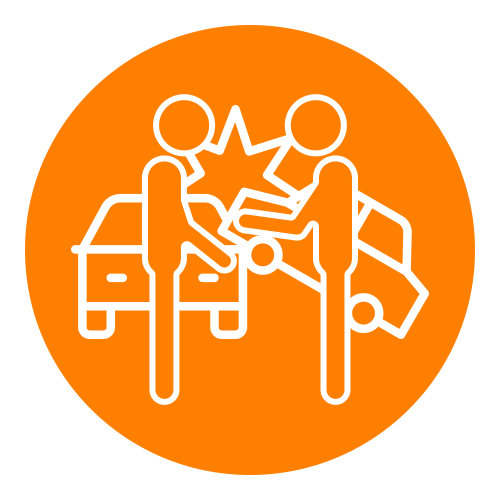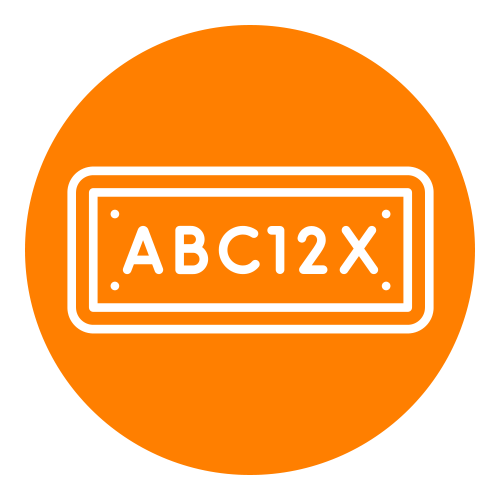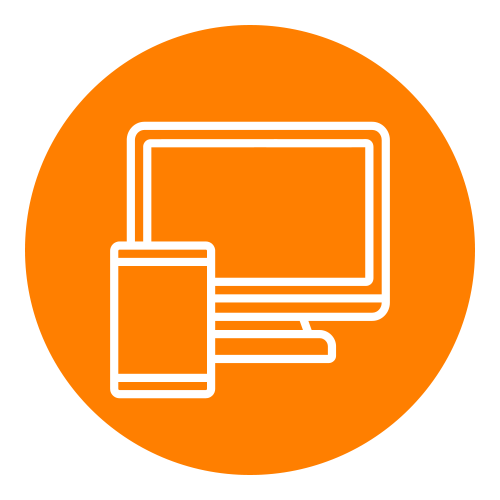Making an insurance claim after a car accident
Making an insurance claim after a car accident
Compare car insurance policies the easy way
Save time and effort by comparing a range of car insurance quotes with iSelect*
What should I do if I get into a car accident?
Which driver makes the claim?
How do I make a Car Insurance claim?
What happens if the other driver is uninsured?
How long do I have to file a claim after an accident?
Can I get Car Insurance after I get into a car accident?
Where can I find a Car Insurance policy?
Instead, you’ve probably made it home and hopefully having a nice cup of tea, trying to work out if you did the right thing back at the scene of the accident.
But if you’re still wondering what else there is to know about making a claim after a car accident, we’ve got you covered. Drink your tea and read on.
What should I do if I get into a car accident?
First things first: stay calm and avoid accusing anyone of being at fault. Then, it might be helpful to follow a checklist. Here’s one we’ve put together, in order of most to least urgent:
| Assess the scene of the accident and make it as safe as possible. | ✔ |
| If anyone has been hurt and needs medical attention, call an ambulance straight away. You may have to administer first aid to anyone who is seriously injured. | ✔ |
| If cars are on fire or smoking, or if people are trapped inside, call the fire brigade. In the case of fire or smoke, move away from the vehicles. | ✔ |
| If you suspect the other driver is affected by drugs or alcohol, call the police. | ✔ |
| You’ll also need to call the police if there is property damage. | ✔ |
| Even if you think you caused the accident, you may not be at fault. In some cases, even though you think you might have caused the accident, you may be legally in the right.2 | ✔ |
| Swap contact details with other parties involved, including: their insurer; the make, colour and model of their car, their car rego, their licence number, and the contact details of the car’s owner. | ✔ |
| Take photos of the accident scene, and write down any details such as the time, date, location, and the names of any witnesses. You might also want to draw a diagram of the location or intersection, which could be helpful for both the police and your car insurer. | ✔ |
| If necessary, call to arrange a tow truck to collect your car. | ✔ |
We know that’s a lot to remember when you’ve just had an accident! But hopefully, with the help of other people at the accident scene, you’ve done everything you needed to do at the time of the accident.
So now what? Who pays for the damage to your car? How do you make a claim on your Car Insurance, or get the other person’s insurer to pay if it was their fault?
Which driver makes the claim?
Whoever is involved in a car accident typically has a ‘duty of disclosure’ which means you should notify your insurer even if you decide not to make a claim.
So, if you have Car Insurance – no matter whether it’s Comprehensive or just Third Party Fire and Theft – then you should call your insurer or jump online and tell them about the accident.
The good news is that some states and territories have a ‘no fault’ insurance scheme, which means that if you’re injured as the result of a car accident (and even if you’re at fault), you can make a claim to help cover any treatment or support you may need to recover after the incident. This is more commonly known as Compulsory Third Party Insurance, and is typically covered in your car registration fee.
If the accident wasn’t your fault, and you’re okay (but perhaps your car isn’t!), you may want to get a quote from a repairer to see how much it will cost to repair your car, and if it’s going to be quite a hefty bill, then you may want to make a claim with your insurer.
If the accident was your fault, and you damaged the other person’s car or property as well as your own, you’ll need to lodge a claim with your insurer.
Be careful though – if the other driver’s insurer clearly determines that the accident was your fault, it may affect your good driving record. For example, if you have no claims discount protection, it may be reduced when you renew your policy.
Helpful Tip:
You might be wondering if your premiums will increase after you make a claim – and in many cases they will. But it does depend on your insurance provider, because each one has its own way of assessing risk. For instance, some insurers will bump up your premium if you cause a crash. However, it might not increase your premium if your car is damaged by a flood or hail, since you didn’t technically cause the accident. It’s worth checking with your insurer to make sure you know which claims will affect the cost of your cover.
How do I make a Car Insurance claim?
Every insurer and policy is different, and there are different rules and processes to go through depending on who you’re with and what type of Car Insurance you’ve got.
Many insurers have a smartphone app that makes it easy to report damage and lodge a claim, so consider downloading that as soon as you take out the policy.
1. Figure out if the damage to your car is worth making the claim.
If the damage to your car was minor, you may be better off not claiming, as the repairs may cost less than your excess. A Car Insurance excess is the fixed amount you pay towards a claim.
2. Get all the details of the incident.
Typically, your insurer will want to know the date, location and any other details of the incident – including the name and contact details of other drivers. This is where your drawing may come in handy, too!
3. Let your insurer get to work.
Once you’ve spoken to your insurer, or accessed their claims portal online, your insurer will then try to find out if the other party has Car Insurance and will confirm who was at fault.
If the repair bill is through the roof, then your car may end up being a write-off – which means it could be time for a new car!

The claim process, step by step!

Exchange contact details and information with the other parties involved at the scene of the incident.

Take photos of the incident or draw a diagram of what occurred.

Collect all your information about the incident, including details of your car, your licence, registration, and the other party’s details, too.

Contact your insurer and submit your claim online, or by email.

Let your insurer get to work!
What happens if the other driver is uninsured?
If the other driver is uninsured, your insurer will pay for any repairs and other costs like towing or a hire car if these things are listed in your policy. Your insurer will try to recover these costs from the other driver, but either way, you don’t have to worry about the other driver’s lack of insurance.
Still, if you’re at fault, it’s a good idea to report the incident with your insurer, so they can advise you on whether to sort it out privately or scrap the idea and make a claim instead. Even if the other driver doesn’t have insurance, your insurer can still contact them on your behalf and take the necessary steps with your claim.
How long do I have to file a claim after an accident?
Even though it can be a stressful situation, and there are no specific deadlines, you should notify your insurer about your accident as soon as possible after it happens.
Can I get Car Insurance after I get into a car accident?
Yes, but starting a new policy directly after an accident may affect your premiums.
Keep in mind that all drivers are covered for costs to treat or support injury after a car accident under Compulsory Third Party Insurance.
The specific items that are covered under Compulsory Third Party insurance can vary between each state and territory, but generally, you can receive cover and support for:
- Medical treatment or services to help you recover
- Replacement or repair for damaged glasses or dentures
- Income support (if you can’t work because of your injuries from the accident)
- Return-to-work support
It’s always a good idea to boost your protection on the roads and consider additional insurance such as Comprehensive, Third Party Property, or Third Party Fire and Theft.
Where can I find a Car Insurance policy?
We understand that making a claim on your Car Insurance can be a stressful time.
If the experience of dealing with your insurer wasn’t as smooth as you’d expected, then perhaps it’s time to review your Car Insurance. iSelect can help make this process easy by helping you compare from a range of insurers and policies*.

Get started on comparing car insurance policies!
Save time and effort by comparing a range of car insurance quotes with iSelect
iSelect does not compare all car insurers or policies in the market. The availability of policies may change from time to time. Not all policies available from iSelect’s providers are compared by iSelect and due to commercial arrangements, area or availability, not all policies compared by iSelect will be available to all customers. Some policies are available only from iSelect’s call centre or website. A number of our participating general insurance brands are arranged by Auto & General Services Pty Ltd ACN 003 617 909 on behalf of Auto & General Insurance Company Limited 111 586 353, both of which are related entities of iSelect Limited. Our relationship with those companies does not impact the integrity of our comparison service. Click here to view iSelect’s range of providers.
iSelect General Pty Limited ABN 90 131 798 126, AFS Licence Number: 334115. Any advice provided by iSelect is of a general nature and does not take into account your objectives, financial situation or needs. You need to consider the appropriateness of any information or general advice iSelect gives you, having regard to your personal situation, before acting on iSelect’s advice or purchasing any policy. You should consider iSelect’s Financial Services Guide which provides information about our services and your rights as a client of iSelect. iSelect receives commission for each policy sold that is a percentage of the premium or a flat fee. Ask us for more details before we provide you with any services.

.svg)







